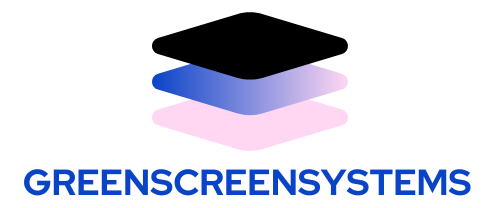Table of Contents
ToggleIn a world where learning is just a click away, edtech companies have taken center stage, revolutionizing education like never before. Gone are the days of dusty textbooks and chalkboards; now it’s all about engaging apps, interactive platforms, and online courses that make learning feel more like a Netflix binge than a chore.
Overview Of Edtech Industry
Edtech companies revolutionize education by incorporating technology into learning. They provide innovative solutions that engage students more effectively than traditional methods. Online courses, interactive platforms, and educational apps dominate this space, making learning more accessible for individuals of all ages.
The global edtech market size reached approximately $254 billion in 2021, with expectations to expand at a compound annual growth rate (CAGR) of 14.6% from 2022 to 2028. This rapid growth illustrates the increasing reliance on digital learning tools. Students, educators, and institutions alike benefit from this trend, embracing technology-driven education.
Top edtech companies like Coursera, Udemy, and Khan Academy lead the industry by offering diverse courses that cater to various learning styles. These platforms enable learners to access high-quality content from anywhere, accommodating busy schedules and different time zones.
Integration of artificial intelligence (AI) and data analytics enhances personalized learning experiences. AI-driven recommendations ensure students receive tailored content, directly addressing their strengths and weaknesses. Engagement and retention rates improve as a result.
Funding for edtech startups continues to surge, with investments surpassing $20 billion in 2021. Investors recognize the potential for growth and societal impact in this sector. Companies focus on expanding their offerings, creating collaborative environments, and improving user experience to capture a larger market share.
As technology advances, the edtech landscape evolves, pushing boundaries in how education is delivered and consumed. This ongoing trend highlights the importance of continuous innovation and adaptation to meet the needs of students and educators globally.
Notable Players In The Market

The edtech industry features significant players shaping the future of education. Companies like Coursera, Udemy, and Khan Academy lead with diverse offerings.
Company Profiles
Coursera, founded in 2012, partners with top universities, providing access to courses from institutions like Stanford and Yale. Udemy boasts over 155,000 courses, catering to learners aiming to develop practical skills. Khan Academy offers personalized learning resources, enabling students of all ages to grasp complex subjects. By focusing on flexible and accessible learning experiences, these companies attract millions of users globally, driving engagement in education.
Key Innovations
Artificial intelligence enhances personalized learning experiences in numerous platforms. Coursera uses algorithms to recommend courses aligned with individual goals. Udemy’s analytics track learner progress, adjusting content based on performance. Khan Academy combines interactive quizzes with instructional videos to engage students actively. These innovations significantly contribute to higher retention rates and more enjoyable learning experiences.
Trends Shaping The Future
Edtech is evolving with several significant trends influencing its future landscape. Major developments include technology integration and impressive market growth.
Technology Integration
Mobile learning apps enhance accessibility. Online platforms now use advanced technologies like virtual reality and augmented reality for more immersive experiences. Artificial intelligence plays a crucial role by offering personalized learning pathways tailored to individual student needs. Adaptive learning systems adjust content in real time based on student performance, fostering engagement. Social learning features encourage collaboration, allowing students to connect and learn together. Notably, companies like Coursera and Khan Academy leverage data analytics to optimize learning experiences, making education more effective and engaging. These integrations ensure that education can adapt to modern demands.
Market Growth
Rapid market expansion characterizes the edtech industry. The global market size reached approximately $254 billion in 2021, with expectations of a compound annual growth rate of 14.6% from 2022 to 2028. Increased funding for startups reflects investor confidence in this sector, surpassing $20 billion in 2021 alone. Educational institutions increasingly adopt digital solutions to enhance learning outcomes, driving demand. Competitors like Udemy and Coursera attract learners by offering diverse courses and certifications. In this landscape, continuous innovation is essential to stay relevant and meet the evolving needs of students and educators.
Challenges Faced By Edtech Companies
Navigating market competition presents a significant challenge for edtech companies. Familiar names like Coursera and Udemy face numerous startups seeking to claim their share of the growing industry. Balancing innovation while managing costs becomes essential, particularly as the global market size reached approximately $254 billion in 2021.
Another hurdle involves ensuring content quality. Edtech firms must continuously provide high-quality courses to attract and retain learners. Adapting to diverse learning styles adds complexity, requiring ongoing research and development.
Regulatory compliance represents an additional layer of difficulty. With varying educational standards across regions, companies must adhere to local regulations while maintaining a consistent user experience. This aspect complicates international expansion for leading platforms.
User engagement remains crucial yet challenging. Retaining learners in an increasingly competitive environment involves leveraging technology effectively, such as personalized learning pathways. Adopting adaptive learning systems proves vital for enhancing student retention and satisfaction.
Securing sufficient funding also poses challenges. Although funding for edtech startups surpassed $20 billion in 2021, not all companies consistently attract venture capital. Financial stability affects their ability to innovate and expand offerings.
Furthermore, technological integration remains an ongoing challenge. Companies must seamlessly incorporate advanced technologies like artificial intelligence and data analytics to enhance learning experiences. Integrating immersive tools can be resource-intensive but essential in standing out.
Staying relevant in a rapidly evolving market demands continuous adaptation. The need to innovate drives companies to adapt their strategies and develop new solutions. Emphasizing collaboration among students has become increasingly important, along with providing diverse learning resources.
The edtech landscape is undeniably reshaping education as we know it. With significant investments and technological advancements, these companies are setting new standards for learning experiences. The commitment to innovation ensures that learners have access to diverse and engaging educational resources.
As the market continues to evolve, it’s clear that adaptability will be key for edtech companies. They must navigate challenges while embracing emerging technologies to enhance student engagement. The future of education is bright with the potential for personalized and immersive learning opportunities that can cater to every individual’s needs.




